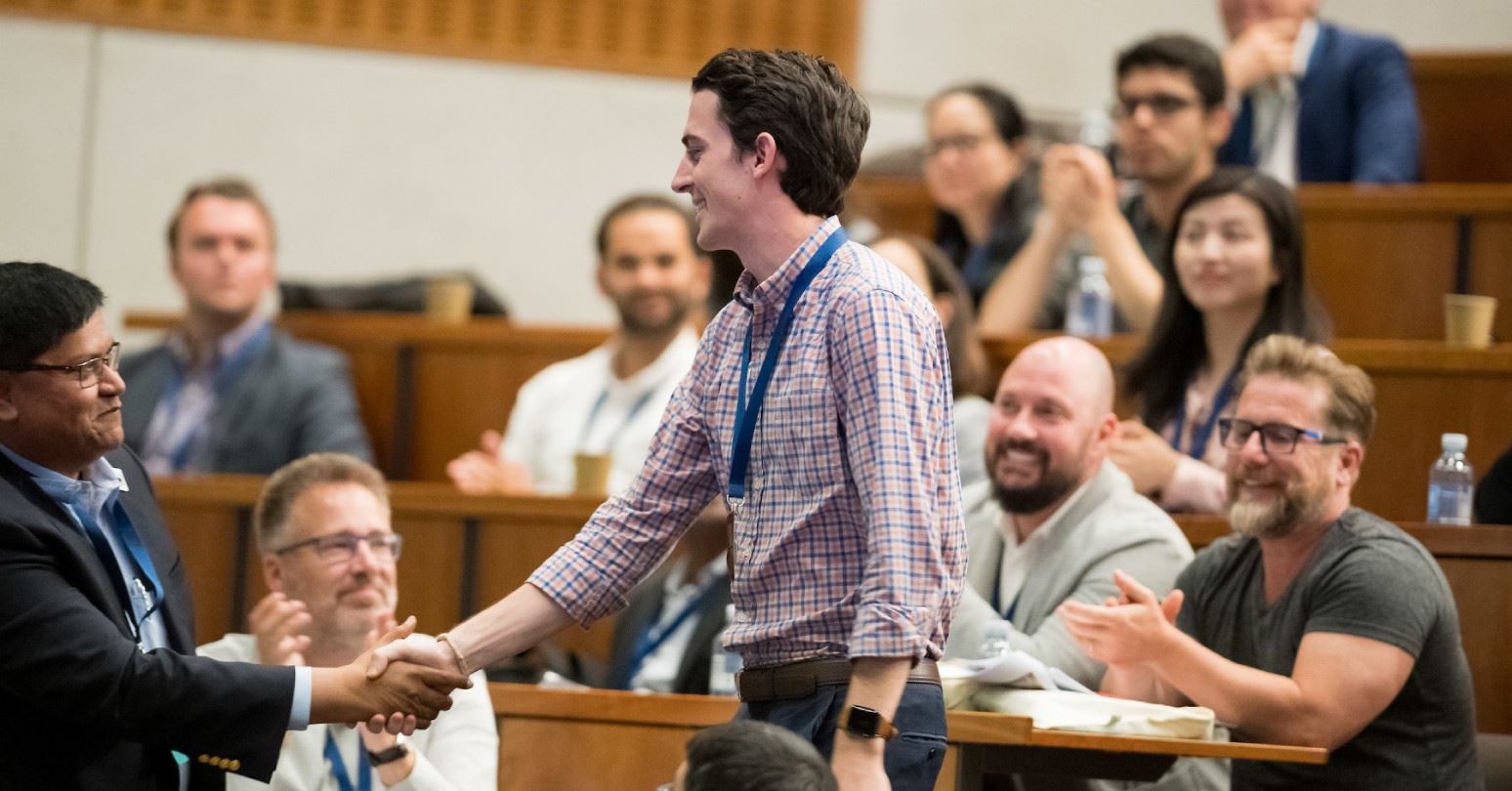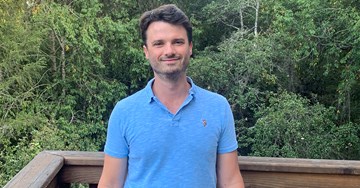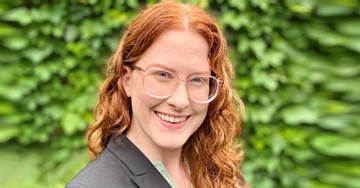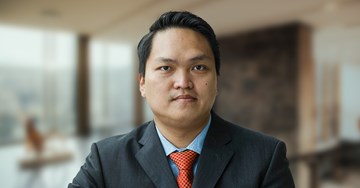Ivey welcomes 12 new faculty members to campus! To help you get to know our new colleagues, we asked each of them a list of questions about their academic – and personal – interests.
Get to know: Daniel Andrews
While studying abroad in Germany, Costa Rica, China, and Austria, as well as visiting 15 other countries, Daniel Andrews found a deep interest in international business. That’s why it’s fitting that he’s a new Assistant Professor of International Business at Ivey. Andrews will be teaching Global Strategy in the HBA program and Internationalization in the MSc program. He has both a PhD and an MBA from Florida International University and a Bachelor of Business Administration degree from The University of Toledo. His professional experience includes business incubation of high-technology startups, and he has also worked in the non-profit sector. He was involved in several early-stage ventures that later partnered with Fortune 100 companies and founders that appeared on the Forbes 30 Under 30 list.
Q&A with Daniel Andrews
What is the most important thing business executives can learn from your research/area of expertise?
My research falls mainly under two broad umbrellas: subsidiary management and collaborative strategy. While I study specific aspects within each, such as decision-making autonomy and knowledge sharing, I argue that the biggest takeaway of my research relates to my focusing on configurations or the broader complexity of phenomena. For instance, managers may allocate more autonomy to subsidiaries in distant (dissimilar) host countries. Still, such decisions will also depend on other relevant environmental conditions, relationships with headquarters, and linkages with external stakeholders. In this way, my research often aims to highlight and make sense of the complexity of devising firm strategy and structure.
Where did you grow up and what was it like there?
I spent most of my childhood in Lima, Ohio, which is about four hours from London, Ont. Lima is your stereotypical rust belt town – a tight-knit blue-collar community, large families, and a long history with manufacturing. Despite its population hovering around only 40,000, Lima is home to an oil refinery, Procter & Gamble, Ford, DANA, Joint Systems Manufacturing Center (military tank manufacturing), and countless others, as well as a globally recognized automotive engineering school. Lima has a small-town feel, but with a (relatively big) global importance.
Who have been your strongest influences in life?
Expectedly, my partner, Jaclyn, and my family have had quite an influence on my life. They enable my curiosity and are the support system behind many life decisions, such as accepting a job at Ivey without ever having visited the campus or London! I must also say that my advisor but, more frankly, a great friend, Stav Fainshmidt, a professor at Florida International University, has played a central role in my professional and personal growth. His commitment to my success is humbling in the truest of sense. I am not sure I would be where I am today without him.
What led you to your career?
I would assume that most people do not grow up dreaming about becoming a professor; instead, it is a chain of events that lead you down the career path. That was the case for me. I have always been interested in problem-solving and understanding how things work. I remember one vivid moment when I was studying abroad during high school: I saw a Ford car in Germany that I never knew existed despite there being a manufacturing plant in my hometown. I then went on to study international business during my undergrad to better understand how such companies operate across borders and, admittedly, with the hopes to be in a career that awards me with frequent travel. After studying abroad two more times, I realized I wanted to study international businesses and people more deeply but could not within the scope of a private-sector job. Fortunately, in my senior year of undergrad, I had a professor who recently completed his PhD at Florida International University who introduced me to the world of research and connected me to my future colleagues in Florida, thus paving my way into academia. The rest is history.
What do you like to do when you’re not working?
I have two Australian Shepherd dogs that take up a lot of my free time, which is one of the reasons I was attracted to London because of its big park system. I am also an avid beer enthusiast, to the extent that I even write papers on the industry. Among other things, I play quite a bit of soccer, attend many live music events, and am exhaustively searching for the best cup of coffee.
What is the most played song on your playlist as of now?
I listen to an eclectic mix of music, but my base interests are rooted in the many variants of house and techno out of Chicago, Detroit, and New York. One of my favourite things to do is browse the internet for original samples and listen to recorded sets from across the globe. Some of the best music in the world touches all corners of the world (a great display of globalization!); for example, a French disco artist plays a classic Brazilian song remastered by an upcoming Greek producer while in an open-air venue in the United Kingdom.
What book would you recommend to others? On the personal side?
On a personal side, I believe that everyone should read (and watch) the work by Anthony Bourdain, such as A Cook’s Tour and World Travel. I also really like the work by Nicholas Kristof and Sheryl WuDunn (A Path Appears) and a book called The Arm by Jeff Passan.
On the business side?
From a business side of things, although they could arguably be a personal read as well, I would suggest Gad Saad’s The Parasitic Mind, Daniel Kahneman's Thinking Fast and Slow, Anand Giridharadas’s Winner Takes All, and Why Nations Fail by Daron Acemoglu and James Robinson.



